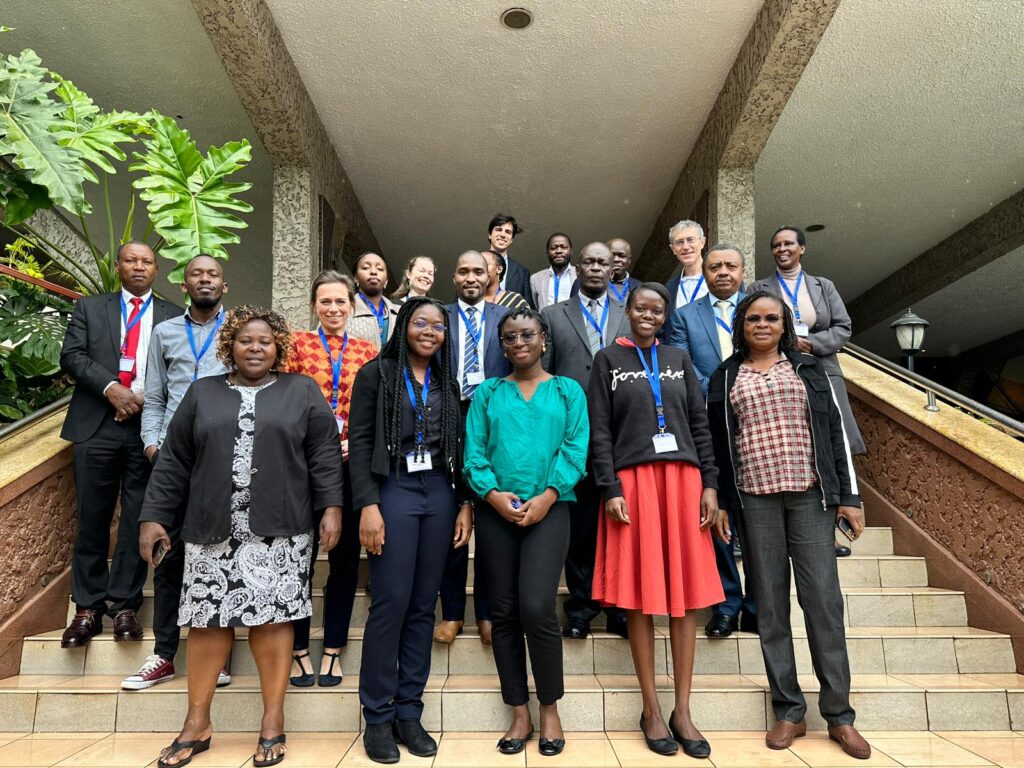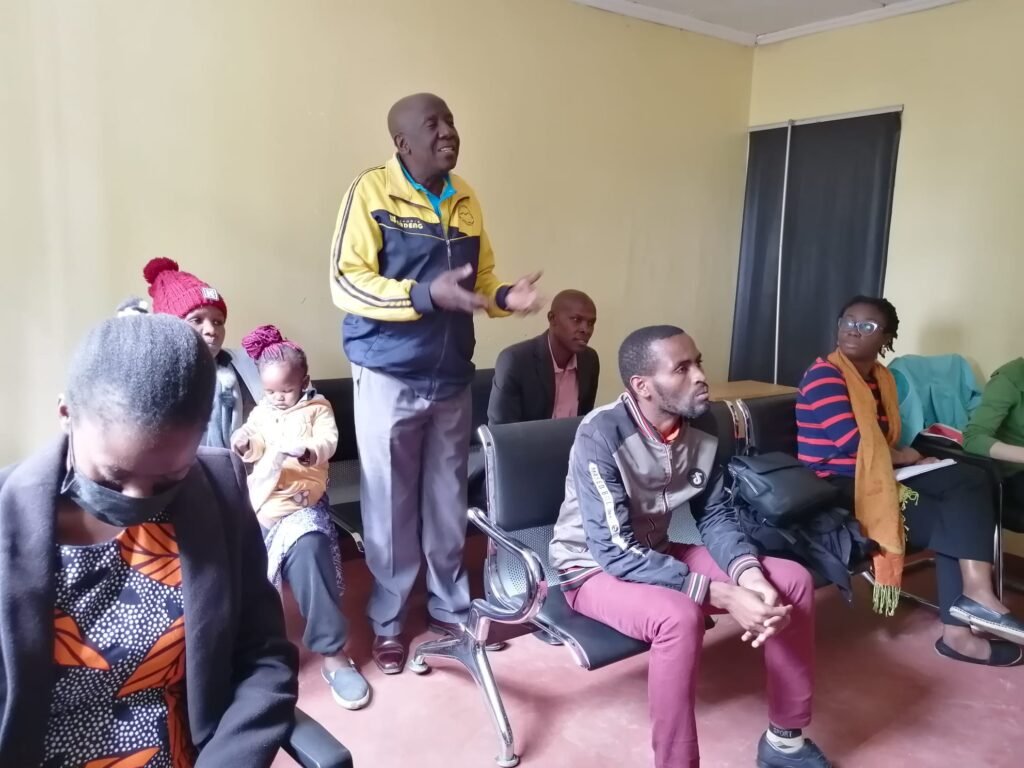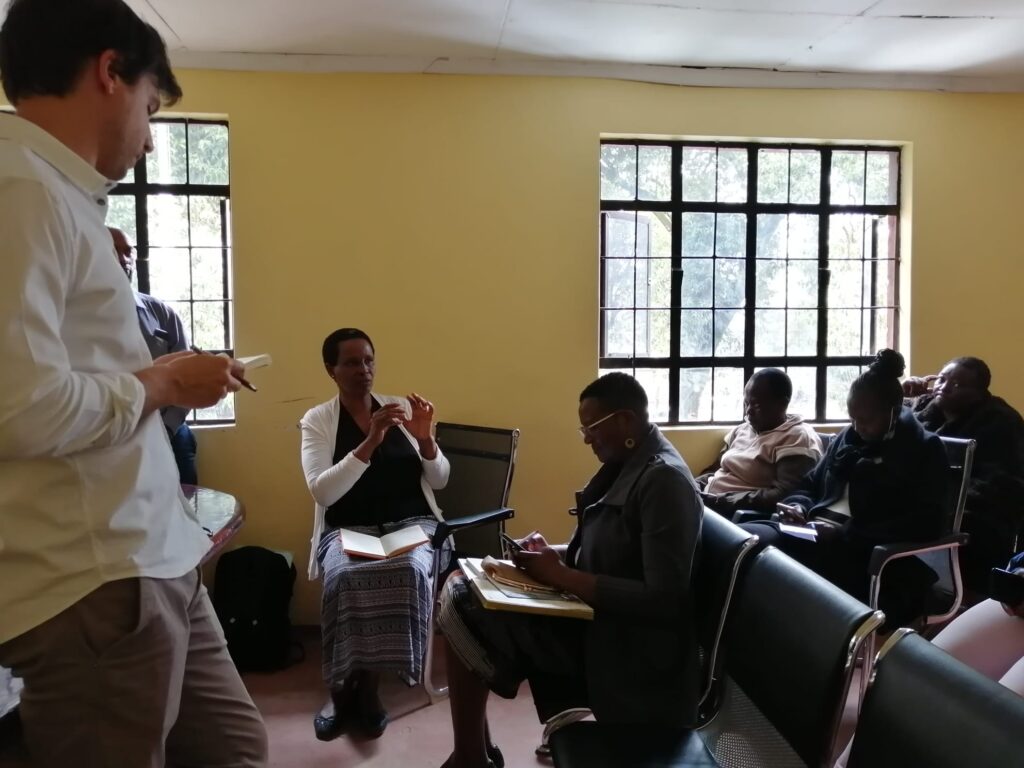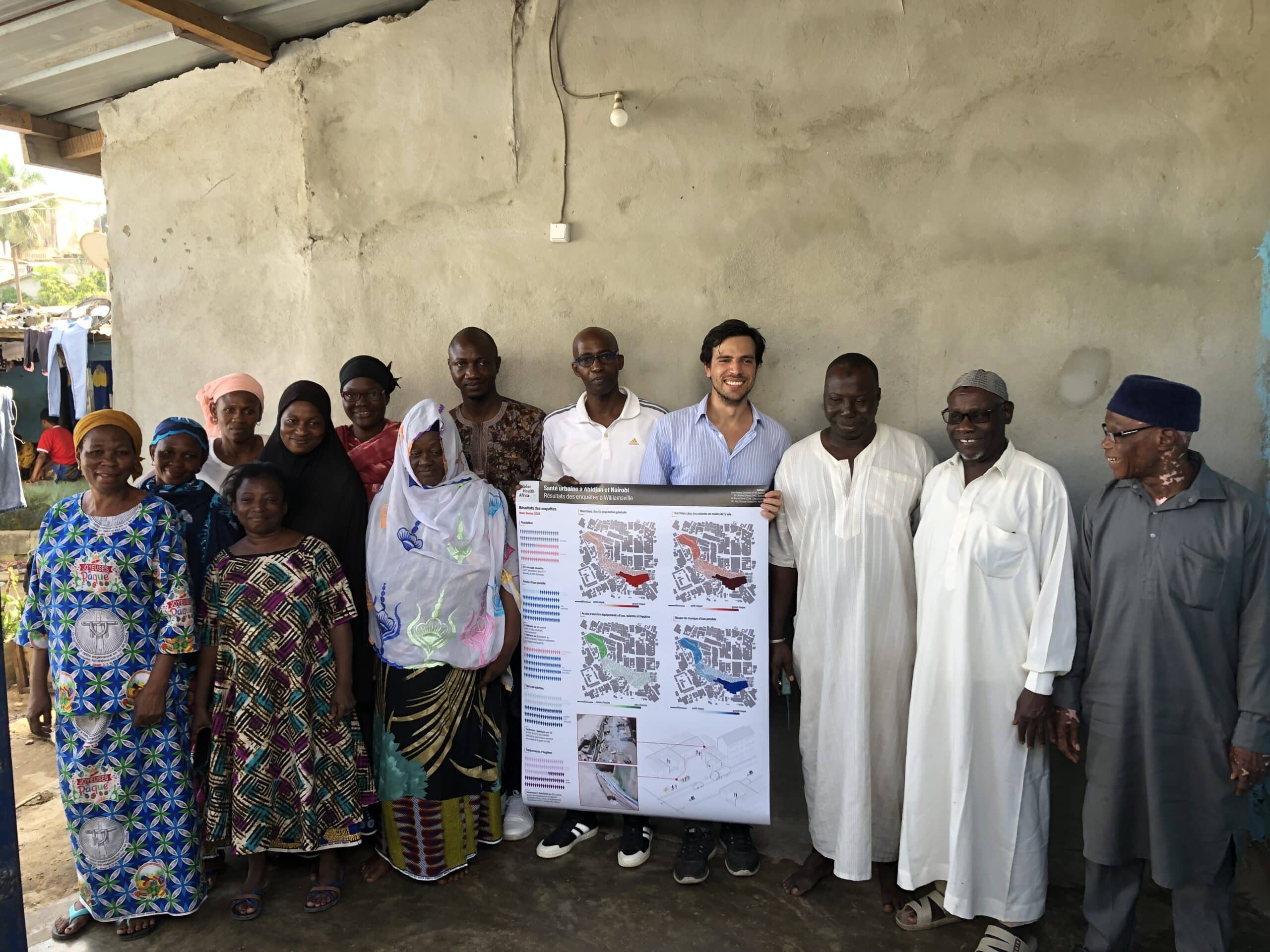First stakeholder workshop: Nairobi, 14-16 November 2022
First stakeholder workshop: Nairobi, 14-16 November 2022



The first stakeholder and dissemination workshop forming part of the project ‘African Contributions to Global Health: Circulating Knowledge and Innovations’ took place in Nairobi from 14 to 16 November 2022. The Swiss-based project, which includes research sites in Kenya, Burkina Faso, Togo, Tanzania, Zambia, and Cote d’Ivoire, investigates knowledge, practices, and applications related to the improvement of health and healthcare which have been developed or designed in Africa, and have become – or have the potential to become – relevant to questions of health globally.
The meetings held in Nairobi are the outcome of close collaboration between the Kenya Medical Research Institute (KEMRI), Nairobi City County, and three Swiss institutions: the University of Basel, Ecole Polytechnique Federale de Lausanne (EPFL), and the Swiss Tropical and Public Health Institute. These meetings focused on research conducted in two informal settlements in the city, namely in Mathare valley and Mukuru kwa Njenga respectively. In the course of 2021, a total of 1,152 household surveys were conducted in these two locales, enquiring into communities’ access to water, sanitation, and healthcare. This forms a key part of the PhD thesis on urban health in Nairobi and Abidjan by Vitor Pessoa Colombo (supervised by Jérôme Chenal and Jürg Utzinger), one of the sub-projects of the African Contributions to Global Health project.
The meetings in November 2022 saw researchers from KEMRI and EPFL present and discuss their research findings with the participating communities, as well as with local decision-makers and researchers. The first meeting on 14 November engaged community leaders, health volunteers, and local administrations from the Mathare site, while the second meeting on 15 November brought together a similar constellation of stakeholders from the Mukuru site. The third and final meeting on 16 November involved representatives from various departments of Nairobi City County, from the Nairobi City Water and Sewerage Company, and research peers from several African institutions.
The goal of this series of stakeholder meetings was to determine, in a collaborative way, policy recommendations regarding access to water, sanitation, and hygiene (WASH) services, as well as to healthcare, in the context of informal settlements in Nairobi. The meetings promoted a transdisciplinary approach by connecting researchers with local communities and decision-makers in order to scrutinize the research results and together formulate responses to WASH- and healthcare-related challenges.
Ultimately, we all want the same thing: human settlements, including cities, with equitable access to basic services that ensure dignified living conditions for all. Across the stakeholder meetings there was a consensus that, to achieve such an ambitious goal, further dialogue between different sectors of society (practitioners, researchers, and, above all, local communities) is much needed. With this series of stakeholder meetings, the project investigators from Switzerland and Kenya have facilitated such inter-sectoral connections in Nairobi, and hope that these will become a common practice.






